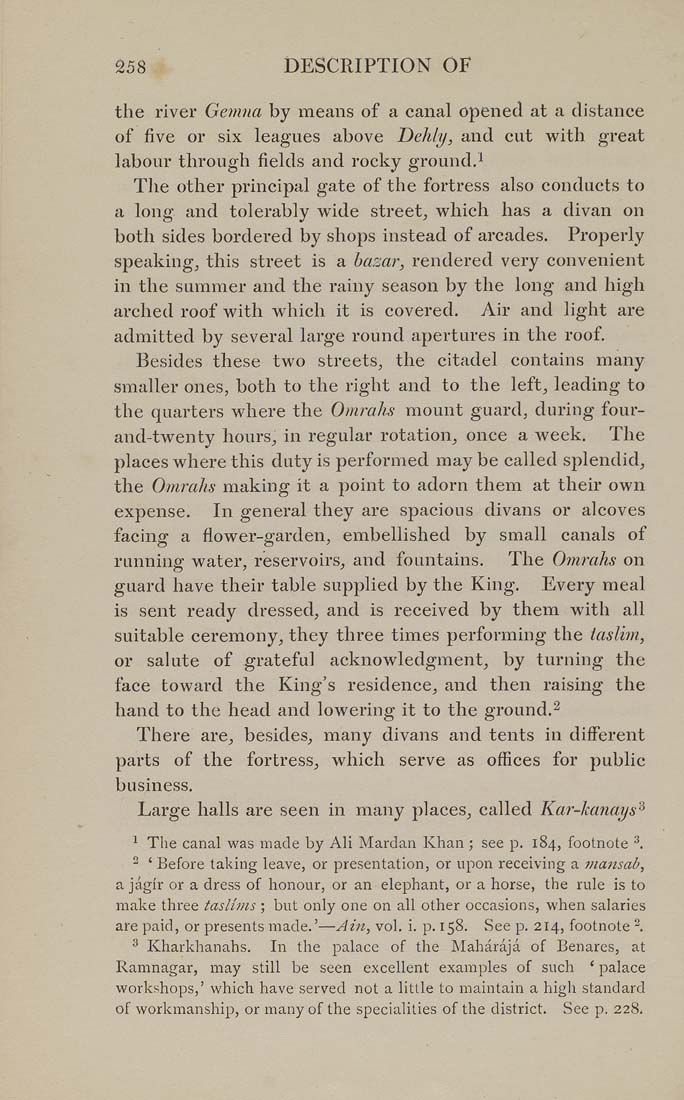258 DESCRIPTION OF
the river Gemna by means of a canal opened at a di.stance
of five or six leagues above Dehly, and cut with great
labour through fields and rocky ground.^
Tlie other principal gate of the fortress also conducts to
a long and tolerably wide street, which has a divan on
both sides bordered by shops instead of arcades. Properly
speaking, this street is a bazar, rendered very convenient
in the summer and the rainy season by the long and high
arched roof with which it is covered. Air and light are
admitted by several large round apertures in the roof.
Besides these two streets, the citadel contains many
smaller ones, both to the right and to the left, leading to
the quarters where the Omrahs mount guard, during four-
and-twenty hours, in regular rotation, once a week. The
places where this duty is performed may be called splendid,
the Omrahs making it a point to adorn them at their own
expense. In general they are spacious divans or alcoves
facing a flower-garden, embellished by small canals of
running water, reservoirs, and fountains. The Omrahs on
guard have their table supplied by the King. Every meal
is sent ready dressed, and is received by them with all
suitable ceremony, they three times performing the taslim,
or salute of grateful acknowledgment, by turning the
face toward the King's residence, and then raising the
hand to the head and lowering it to the ground.^
There are, besides, many divans and tents in different
parts of the fortress, which serve as offices for public
business.
Large halls are seen in many places, called Kar-kanays^
^ The canal was made by Ali Mardan Khan ; see p. 184, footnote ^.
^ ' Before taking leave, or presentation, or upon receiving a mansab,
a jagfr or a dress of honour, or an elephant, or a horse, the rule is to
make three taslims ; but only one on all other occasions, when salaries
are paid, or presents made.'—Ain, vol. i. p. 158. See p. 214, footnote ^
** Kharkhanahs. In the palace of the Maharaja of Benares, at
Ramnagar, may stilt be seen excellent examples of such ' palace
workshops,' which have served not a little to maintain a high standard
of workmanship, or many of the specialities of the district. .See p. 228.
|








